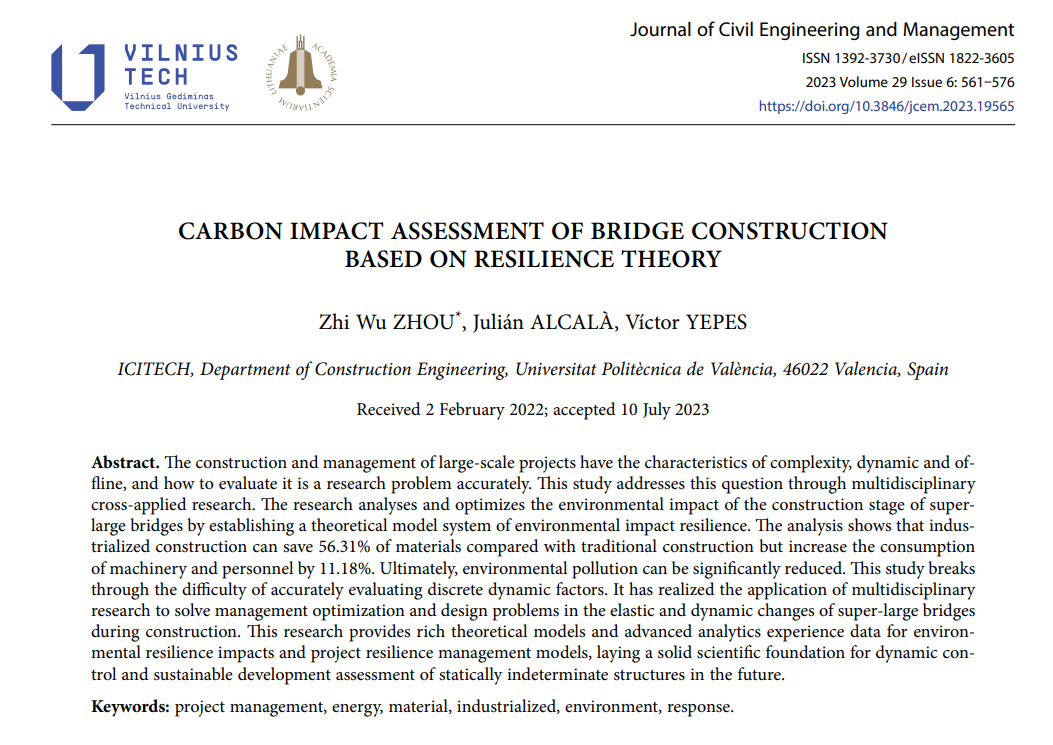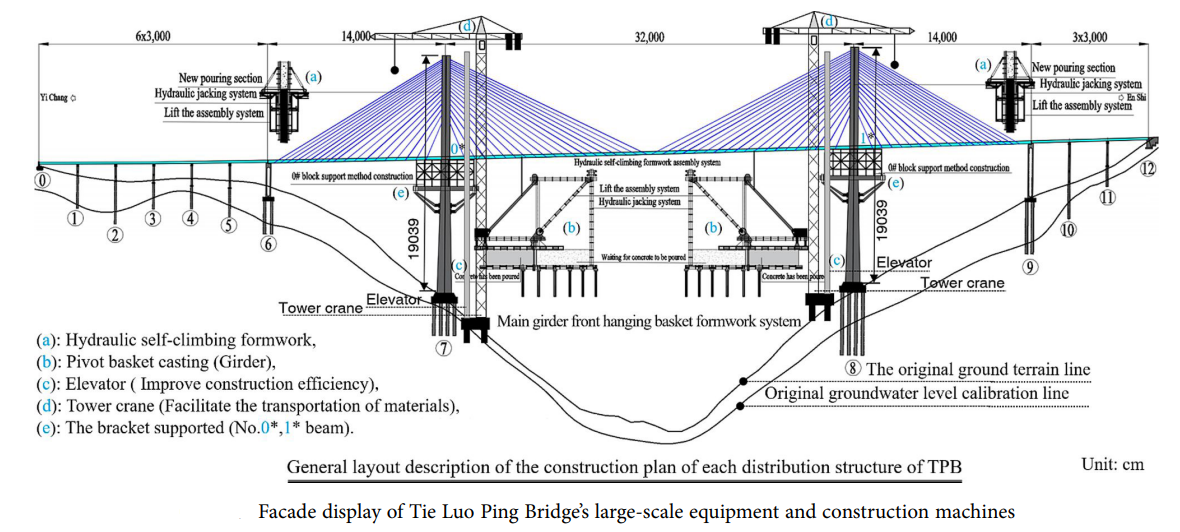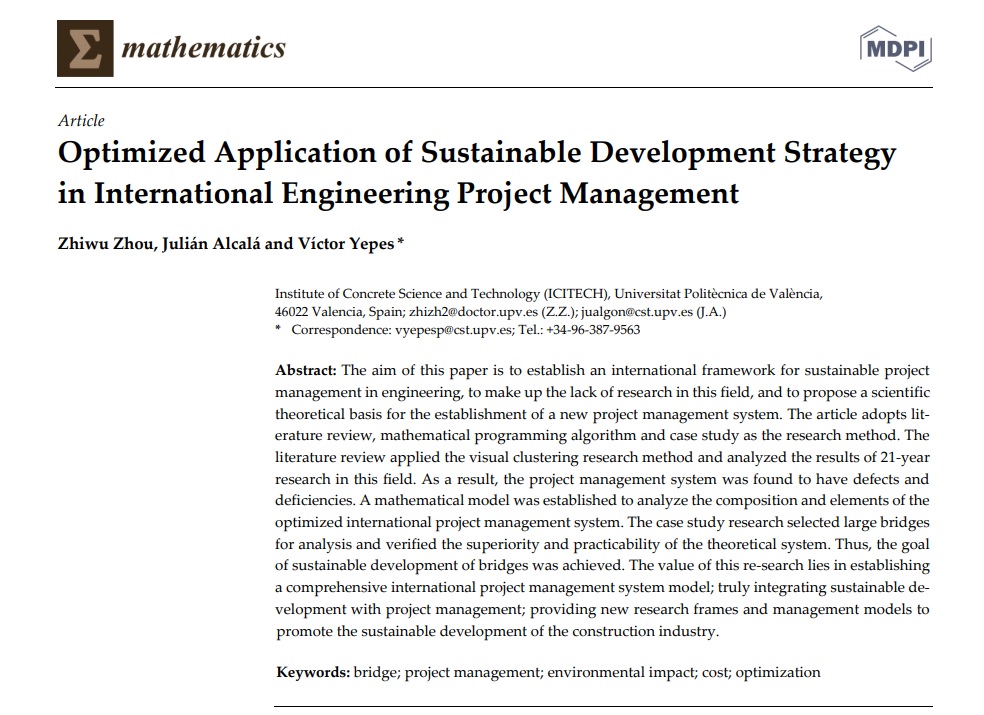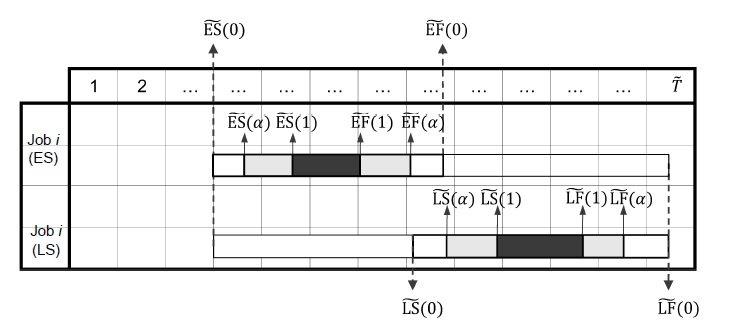 Acaban de publicarnos un artículo en Journal of Civil Engineering and Management, revista indexada en el primer cuartil del JCR. El artículo propone un procedimiento para evaluar la huella de carbono en la construcción de un puente basándose en la teoría de la resiliencia. La investigación proporciona modelos teóricos y datos sobre los impactos de la resiliencia ambiental y los modelos de gestión de la resiliencia de los proyectos, lo que contribuye al control dinámico y a la evaluación del desarrollo sostenible de las estructuras de puentes a gran escala en el futuro. El trabajo se enmarca dentro del proyecto de investigación HYDELIFE que dirijo como investigador principal en la Universitat Politècnica de València.
Acaban de publicarnos un artículo en Journal of Civil Engineering and Management, revista indexada en el primer cuartil del JCR. El artículo propone un procedimiento para evaluar la huella de carbono en la construcción de un puente basándose en la teoría de la resiliencia. La investigación proporciona modelos teóricos y datos sobre los impactos de la resiliencia ambiental y los modelos de gestión de la resiliencia de los proyectos, lo que contribuye al control dinámico y a la evaluación del desarrollo sostenible de las estructuras de puentes a gran escala en el futuro. El trabajo se enmarca dentro del proyecto de investigación HYDELIFE que dirijo como investigador principal en la Universitat Politècnica de València.
- El artículo contribuye al campo de la construcción de puentes al abordar la evaluación del impacto ambiental durante la etapa de construcción de puentes a gran escala, utilizando un enfoque multidisciplinario. Establece un sistema modelo teórico de resiliencia al impacto ambiental, proporcionando modelos teóricos detallados y datos de experiencia analítica avanzada para los impactos de la resiliencia ambiental y modelos de gestión de la resiliencia de proyectos.
- La investigación destaca los beneficios de la construcción industrializada, que puede ahorrar materiales y reducir la contaminación ambiental en comparación con los métodos de construcción tradicionales. También elimina la dificultad de evaluar con precisión los factores dinámicos discretos en la construcción de puentes.
- El estudio demuestra la aplicación de la teoría de la resiliencia al análisis del impacto ambiental de la construcción de puentes, proporcionando una base científica sólida para el control dinámico y la evaluación del desarrollo sostenible de las estructuras de puentes a gran escala en el futuro.
- Los resultados de esta investigación pueden servir de base para la toma de decisiones en la industria de la construcción, en particular en lo que respecta a la optimización de los métodos de construcción y la minimización de la contaminación ambiental durante la fase de construcción de puentes a gran escala.
Abstract:
The construction and management of large-scale projects have the characteristics of complexity, dynamic and offline, and how to evaluate it is a research problem accurately. This study addresses this question through multidisciplinary cross-applied research. The research analyses and optimizes the environmental impact of the construction stage of superlarge bridges by establishing a theoretical model system of environmental impact resilience. The analysis shows that industrialized construction can save 56.31% of materials compared with traditional construction but increase the consumption of machinery and personnel by 11.18%. Ultimately, environmental pollution can be significantly reduced. This study breaks through the difficulty of accurately evaluating discrete dynamic factors. It has realized the application of multidisciplinary research to solve management optimization and design problems in the elastic and dynamic changes of super-large bridges during construction. This research provides rich theoretical models and advanced analytics experience data for environmental resilience impacts and project resilience management models, laying a solid scientific foundation for dynamic control and sustainable development assessment of statically indeterminate structures in the future.
Keywords:
Project management; energy; material; industrialized; environment; response.
Reference:
ZHOU, Z.; ALCALÁ, J.; YEPES, V. (2023). Carbon impact assessment of bridge construction based on resilience theory. Journal of Civil Engineering and Management, 29(6):561-576. DOI:10.3846/JCEM.2023.19565
Al tratarse de un artículo publicado en abierto, os dejo el mismo para su descarga. Espero que os sea de interés.



